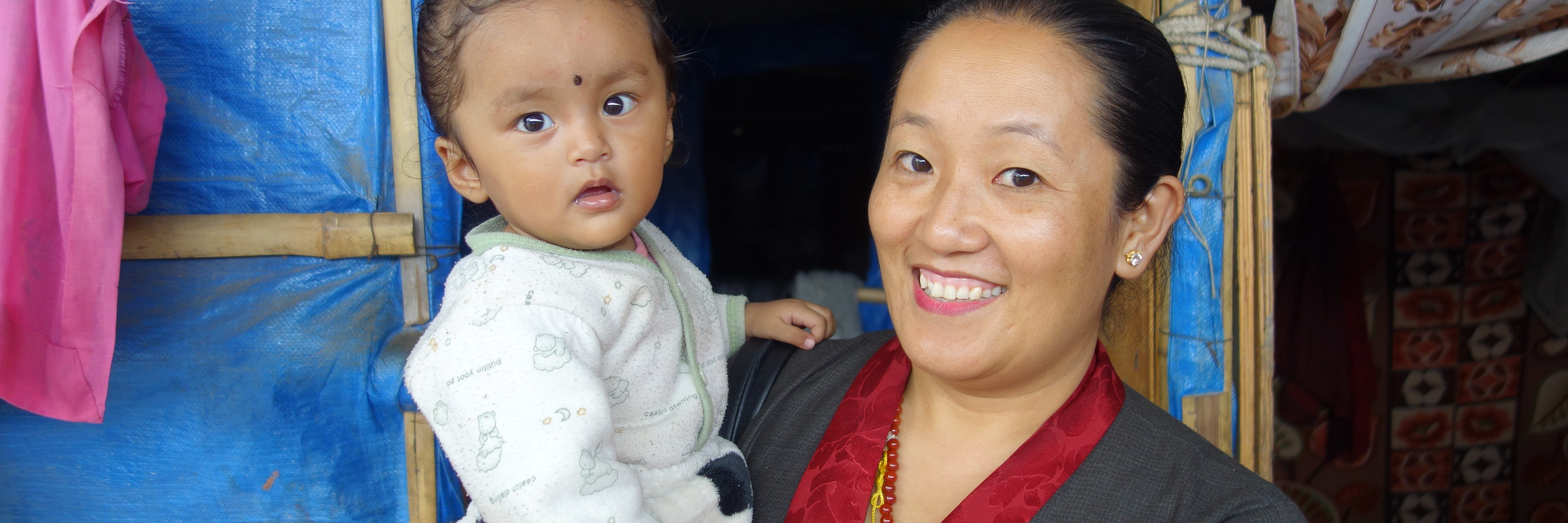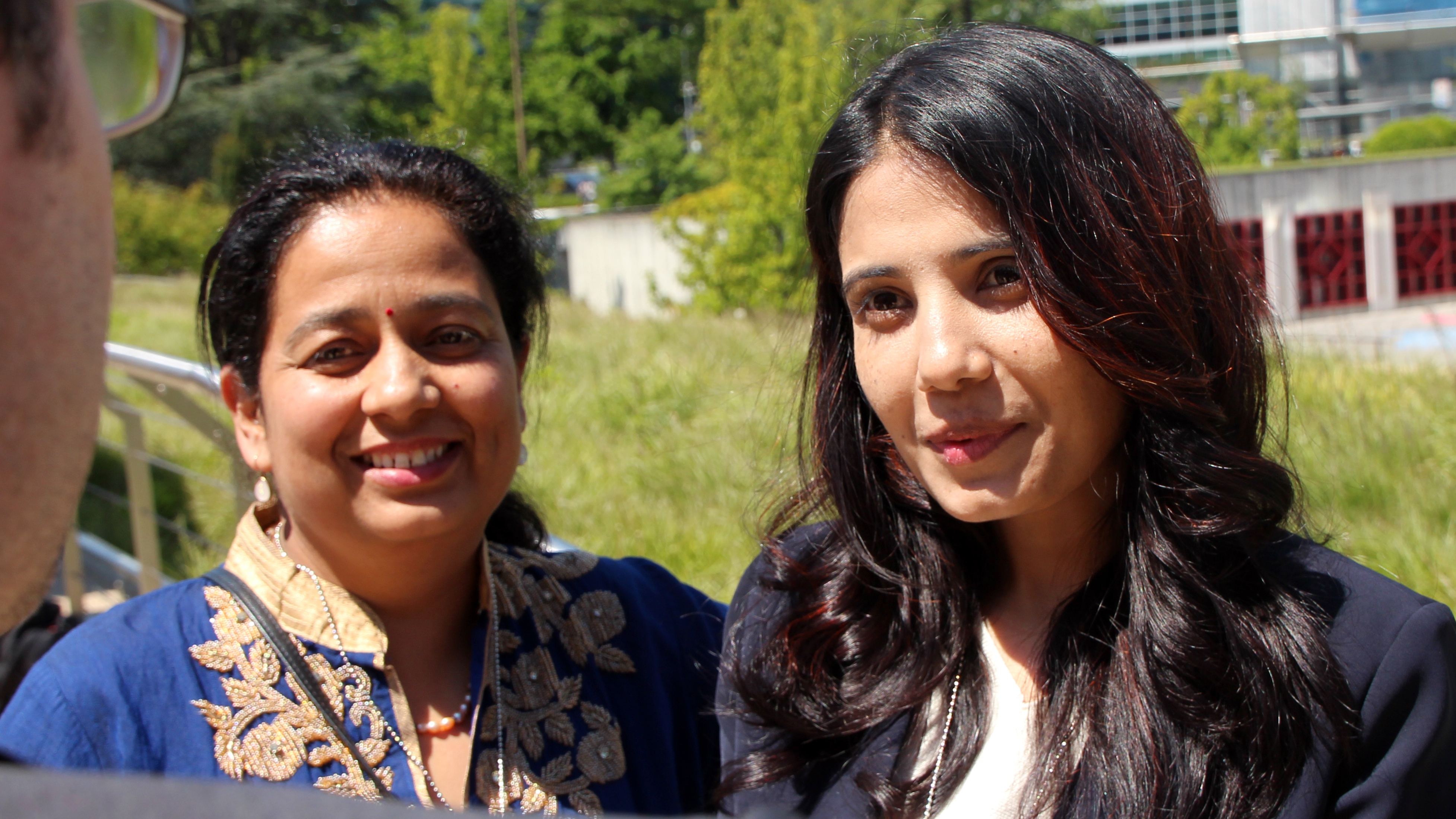
EpiNurse – a RISK Award project in the home straight
Interview with Apsara Pandey and Sushila Pandel
properties.trackTitle
properties.trackSubtitle
The EpiNurse project in Nepal won the 2017 RISK Award. For the past two years we have been supporting this outstanding project. The aim is to improve healthcare and the health system in Nepal after and during disasters with the use of modern information and communication technologies (ICT). Specially trained nurses are the cornerstone of the initiative. As the project enters the home straight, we spoke with two key representatives from the Nursing Association Nepal (NAN), which is responsible for EpiNurse.

MRF: Sushila and Apsara, you have been looking after the project for almost two years now. What has been achieved?
Sushila: The name ‘EpiNurse’ itself is now well known in Kathmandu and beyond. The project has led to greater public recognition of the nurses’ efforts for improving the Nepalese health care system using ICT. In two years, we were able to hold more than ten workshops that created visibility even in rural regions. Around 200 nurses from different regions of Nepal have been trained and certified as EpiNurse by now. That means that they are familiar with the new digital systems and are helping to design a more efficient health management for thousands of people. The ShineOs software used by the EpiNurses on a daily basis was updated and adapted to actual local needs in Nepal.
MRF: What are the next steps?
Apsara: The RISK Award has helped us to design the pilot phase successfully. What we need to do now is to set up the EpiNurse project in a sustainable way to ensure long-term success. This does not only include the further development of contents but also the establishment of a solid financial basis for the project. An important step in this context is our cooperation with the Health Ministry. We work very intensively on integrating the EpiNurse system in the governmental mechanisms of disaster risk reduction. One of our objectives is to revise disaster nursing contents in the national nursing curriculum and to integrate the EpiNurse concept. This will be an efficient way to extend the range of the programme.
MRF: And aside from the politics, what else is happening in the educational sector?
Sushila: We are already working with schools and universities in the project. A capacity building training-manual has been developed in accordance with national standards. Pokhara University has already incorporated nursing and our ideas in its offered Bachelor courses. “One school one nurse” is a policy newly implemented by the authorities. The Province 3 government of Nepal has launched this scheme in 20 community schools. As part of our ‘School EpiNurse’ programme, NAN has trained 20 school nurses for this initiative. They already have initiated the data collection of schools and students using the ‘School EpiNurse’ application. We are in the trial and error phase.
MRF: What is happening in the field?
Sushila: We will continue to provide training and capacity building to new nurses, to perform data collection, analysis and case studies using the EpiNurse application. A comprehensive disaster information management system (DIMS) in Nepal is still under development. We try to find a possibility to integrate our indicators in the DIMS in order to simplify risk communication, avoid duplications and enable coordination. This requires cooperation with the government as well. For that, consultation meetings and workshops are taking place.
MRF: Do you have official public partners by now?
Apsara: Yes, sure. Up to now, we have been working with the Kathmandu City Authorities. And - as said – we are also in discussions with the National Ministry of Health. One challenge we face is that the health system in Nepal has a very regional structure. In many cases, care within a region is provided by health centres that operate relatively independently of one another. We are in discussions with representatives of e.g. the Ministry of Social Development in Province 3, which is responsible for the region surrounding Kathmandu. A Memorandum of Understanding has been developed with this Ministry for data collection by school nurses, but we need to expand the program at the community level as well. We hope to establish a stronger foothold there. Province 3 is extremely hilly and includes the high mountain ranges of Langtang and Ganesh. Not an easy area. For the development of the national curriculum, we have the Nepal Nursing Council as one of our crucial partners.
MRF: Do you see other positive aspects of the RISK Award, maybe apart from assisting the project financially?
Apsara: Definitely. The announcement of the award at the Global Platform for DRR in Geneva in 2017 gave us a much higher level of visibility from the very start. Not just here at home, also internationally. The World Health Organisation (WHO) is going to declare 2020 the “Year of the Nurse”. We were also invited to the pre-discussions on this initiative, at the same time as the Global Platform in May 2019 in Geneva. Other countries as well, including Indonesia, the Congo and the Philippines, are showing deep interest in our approach.
MRF: What were the most important guarantees of success for the project up to now?
Sushila: The most important thing is that the project was in the hands of the EpiNurses themselves from the get-go. Local nurses are the first health care responders in communities during an emergency. They can understand best the language, culture, local community needs and resources. Thus, they can best predict which treatments, medicines and care will be needed. Ownership is a key factor for success. With advice from Sakiko (MRF note: the founder of EpiNurse in Japan), we were then able to make the leap into the digital world.
Apsara: Another important aspect particularly in Nepal is the empowerment of women. We are often the people with responsibility, in the field of healthcare for example. But in many cases, we are not seen as important decision-makers. In this respect the RISK Award project has had a very positive impact. Nurses are taking on more visible tasks, and that in turn increases their self-confidence. This finally serves the patients and the people at risk.
MRF: Thank you very much for the insights! We wish you every success with EpiNurse in the future!
25 September 2019